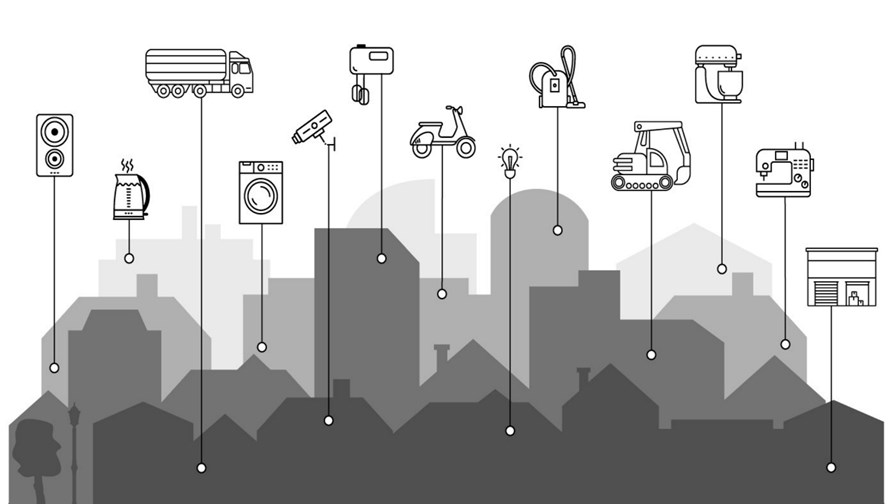
via Flickr © medithIT (CC BY 2.0)
- This should have been obvious from the start, but we like technology battles
- Different IoT flavours and standards will suit different use cases
- Telcos are adopting proprietary IoT alongside standard NB-IoT and LTE-M
IoT appears to be growing up and past the standards battle stage of life. Instead, its participants are increasingly seeing the field as a series of applications and use cases with the most appropriate IoT technology being slotted in as appropriate, not as a big playing field served by a winning IoT flavour.
This change has been creeping up for a few years as the reality of the IoT market has become clearer.
For one thing many applications may require a mix of technologies with one set of cheap(er) IoT devices, say low-powered LoRa sensors, feeding back to a remote IoT hub in turn connected via LTE to the network - and many similar combinations. For another, the applications are so diverse that their implementers need a spread of connectivity options to choose from make them viable.
There are many signs of this change now. News just in has the NFC Forum (near field communications) and the LoRa Alliance in a ‘liaison’ to “explore technical cooperation for IoT applications.”
Where before the standards forums (if you think companies are competitive, spend time with an industry forum) were usually wary of other groups and keen to protect their turf. Now they often now see the benefit of leaning on each other instead for a win-win. This agreement focuses on technical cooperation, use case exploration, and the potential to promote the use of NFC in combination with LoRaWAN for IoT applications.
“The liaison with the LoRa Alliance advances the NFC Forum’s goal of expanding the use of NFC to help connect, commission and control the predicted 36 billion IoT devices in use by 2020,” said Paula Hunter, executive director, NFC Forum. “We welcome opportunities to partner with complementary technologies to better address emerging market needs.
“It is clear that no one standard or technology can meet the needs of every IoT use case,” said Donna Moore, CEO and Chairwoman of the LoRa Alliance. “We are strongly committed to working with other collaborative organizations to enhance the LoRaWAN protocol and ensure its interoperability with other industry standards.”
The fact is that up until fairly recently ‘IoT’ was, more often than not, viewed as a technology. Like many technologies it was understood that it would benefit from scale, so the ‘best’ or first to market implementation of the technology would be the standard and that would create a virtuous cycle of ever-cheaper devices, more take-up, more use case innovation and so on, the lead approach probably knocking out the other approaches on its rise.
Furthermore telco adoption would require official standardisation, otherwise telcos were unlikely invest.
So we’ve experienced a prolonged period of IoT technology rivalry with telco standards NB-IoT and LTE-M to a certain extent pitted against each other, but certainly pitted against proprietary technologies Sigfox and LoRa.
Early on one or two telcos took an independent stance and adopted LoRa with the idea that they could tier their offerings - critical and/or data hungry applications with NB-IoT and LTE-M; cheaper, less critical applications on LoRa and operating in public spectrum.
KPN, for instance, announced LoRa adoption back in 2016 (see - KPN claims full national coverage for its LoRa LPWAN network), but as a rule telcos (mobile telcos in particular, who had been, and still are, growing an M2M/IoT market using cellular standards) wanted to keep things in the telco family.
But the cracks are well and truly on-show now. Earlier this month, for instance, we reported that BT had secured a contract for a low-powered IoT installation for one of the UK’s water utilities, Northumbrian Water. The chosen solution was BT’s LoRa network, ideal for an application involving around 150 sensors to capture data on water flow, pressure and water quality.
Then just last week Teracom A/S, a Danish broadcaster and telco, LoRaWAN operator and service provider; and Loriot, a global IoT company, announced plans to provide Denmark with a nation-wide long-range LoRa network.
Expect to see more technology sharing and network concatenation in future.
Email Newsletters
Sign up to receive TelecomTV's top news and videos, plus exclusive subscriber-only content direct to your inbox.




